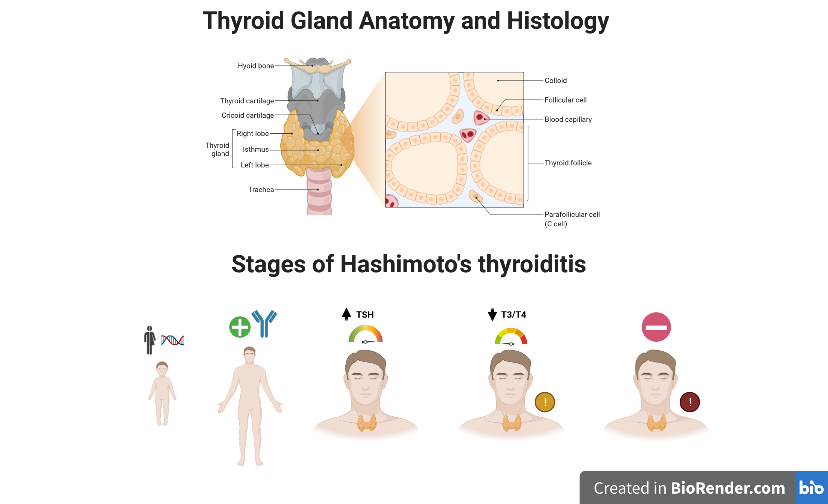Hashimoto thyroiditis, also known as chronic autoimmune thyroiditis or chronic lymphocytic thyroiditis, is an autoimmune illness in which thyroid cells are damaged by immunological mechanisms involving cells and antibodies. Thyroid peroxidase and/or thyroglobulin autoantibodies in the serum are biochemical indicators of the condition, with females having a higher incidence than males and increasing with age. It's the leading cause of hypothyroidism in affluent countries. Inadequate dietary iodine intake, on the other hand, is the most common cause of hypothyroidism worldwide. The development of antithyroid antibodies that target the thyroid tissue, causing gradual fibrosis, is the pathogenesis of Hashimoto thyroiditis. The diagnosis can be difficult, and as a result, the problem is frequently not detected until late in the disease process. The most prevalent laboratory findings are raised TSH and low thyroxine (T4) levels, as well as enhanced antithyroid peroxidase (anti-TPO) antibodies. The pathogenesis, diagnosis, and management of Hashimoto thyroiditis are discussed in this article.

